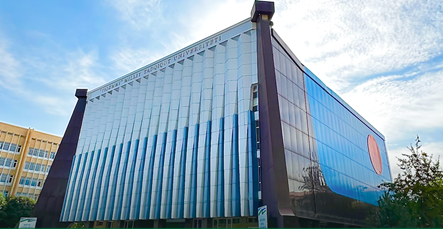TEACHING ENGLISH TOURISM TERMS IN ESP CLASSES
Keywords:
Tourism terms, cognitive psychology, tourism industry, international travel.Abstract
This article examines the importance of teaching English tourism terms in ESP classes. Teaching English tourism terms in ESP classes is a scientifically grounded endeavor that leverages principles from SLA, cognitive psychology, and educational technology. By adopting evidence-based practices and addressing existing gaps, educators can better prepare learners to meet the demands of the dynamic and ever-evolving tourism industry.
References
Cepeda, N. J., Pashler, H., Vul, E., Wixted, J. T., & Rohrer, D. (2006). Distributed practice in verbal recall tasks: A review and quantitative synthesis. Psychological Bulletin, 132 (3), 354–380.
Crystal, D. (2003). English as a Global Language (2nd ed.). Cambridge University Press.
Ellis, R. (2003). Task-based Language Learning and Teaching . Oxford University Press.
Hutchinson, T., & Waters, A. (1987). English for Specific Purposes: A Learning-Centered Approach . Cambridge University Press.
Liu, N., & Littlewood, W. (1997). Why do many students fail to learn grammar naturally in CLT classrooms? System, 25 (3), 327–338.
Mayer, R. E. (2005). The Cambridge Handbook of Multimedia Learning . Cambridge University Press.
Nation, I. S. P. (2001). Learning Vocabulary in Another Language . Cambridge University Press.
Pane, J. F., Griffin, B. A., McCaffrey, D. F., & Karam, R. (2014). Effectiveness of cognitive tutor algebra I at scale. Educational Evaluation and Policy Analysis, 36 (2), 127–144.
Paivio, A. (1986). Mental Representations: A Dual Coding Approach . Oxford University Press.
Swain, M. (1985). Communicative competence: Some roles of comprehensible input and comprehensible output in its development. In S. Gass & C. Madden (Eds.), Input in Second Language Acquisition (pp. 235–253). Newbury House.
Richards, J. C., & Rodgers, T. S. (2014). Approaches and Methods in Language Teaching (3rd ed.). Cambridge University Press.
Vygotsky, L. S. (1978). Mind in Society: The Development of Higher Psychological Processes . Harvard University Press.
World Travel & Tourism Council (WTTC). (2022). Economic Impact Reports . Retrieved from https://wttc.org
Jurayeva, M., Umarova, F., & Kholmurodova, E. (2024). THE EFFECTIVENESS OF GENDER APPROACHES IN HIGHER EDUCATION SYSTEM. Science and innovation, 3(Special Issue 15), 707-710.
Khasanovna, K. E. TYPOLOGICAL CLASSIFICATION OF LANGUAGE. INNOVATION IN THE MODERN EDUCATION SYSTEM, 46.
Published
Versions
- 2025-03-14 (2)
- 2025-03-07 (1)










